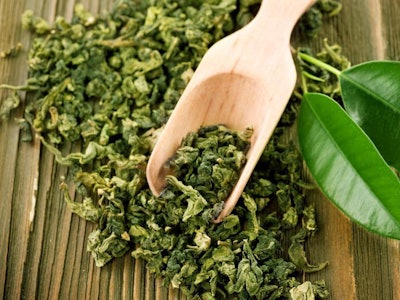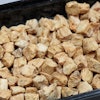
Nutraceuticals lack a firm definition in pet food. In general, nutraceutical ingredients in pet food go beyond providing basic nutrition and have some value to health and wellness of the pet. Turmeric, green tea extracts, Yucca schidigera and collagen appear as nutraceuticals in Petfood Industry’s Ingredient Issues archive. Formulations using these pet food ingredients may fall under federal oversight as dog, cat and other pet supplements, especially if certain labeling claims are made.
Regulation of dog, cat and other pet supplements
Regulation of pet supplements has a complex history, reported David Dzanis, PhD, DVM, in his Petfood Industry column. The passage of the Dietary Supplement Health and Education Act of 1994 (DSHEA) fundamentally changed how FDA could regulate dietary supplements for human consumption, as the new law provided for both the use of ingredients that normally would not be allowed in foods in conventional form as well as for label claims that would otherwise render a food product to be a "drug." Not surprisingly, the supplement industry flourished as a result, and notwithstanding FDA's formal notice in 1996 that DSHEA did not apply to animal products, that category grew substantially as well. This caused a great conundrum for both the industry and regulators, as many supplement products for animals simply could not fit within the AAFCO rubric.
Eventually, an amenable albeit tenuous solution was reached through the efforts of the National Animal Supplement Council (NASC). Animal supplements that supply only AAFCO-acceptable ingredients (e.g., vitamins, minerals, fatty acids) remain squarely within AAFCO's purview. For those that include ingredients that are not approved for use in feeds (e.g., herbs, metabolites), NASC developed a novel scheme for labeling of "dosage-form animal health products" that more closely emulated the labeling as required by DSHEA. Regulatory concerns regarding safe use of products containing unapproved ingredients were placated by NASC's commitments to self-regulate through mandatory audits of its members and implementation of an adverse effect reporting system.
Makers of these products must abide by conditions set by FDA and states that enforce "animal remedy" laws as "unapproved drugs of low regulatory priority." However, for the most part these products escape the scrutiny of state feed control officials, because as labeled they are no longer "feeds" per se. As viewed by the typical purchaser of animal supplements, though, the distinction between products subject to the feed regulations and those that are not may not be readily apparent.
Examples of pet food nutraceuticals
From Petfood Industry’s Ingredient Issues column by Greg Aldrich, PhD, professor and pet food program coordinator at Kansas State University
Green tea extract: is this herb safe in dog, cat diets?
While green tea extract is not technically permitted in US pet foods, there are a number of dog and cat diets that contain this ingredient on their label. It is being promoted for a myriad of effects from health and wellness of the animal to a key component of modern, natural antioxidant preservative systems. There is plenty of human-focused production, consumption, medical and analytical research published on the topic. Green tea has been considered a contributing factor in cancer prevention; and claimed to lower cholesterol, reduce blood pressure, possess bactericidal and anti-viral activity, prevent halitosis and modulate blood sugar; along with a host of other benefits.
Yucca schidigera: Latin for odor-reducing petfood ingredient
Periodically one finds an ingredient called Yucca schidigera extract on the label of a petfood—and not just on dog and cat food labels. You might even find it on ferret and rabbit food labels; and for those of you who consider your horse a pet, you may see it in horse feeds. This ingredient goes only by its Latin Linnaean name, which is sort of odd. Plus, it is not something you would ordinarily find on the grocery store shelf. So, in our ingredient-name-obsessed industry, why is this odd sounding item in some of our pet foods? In the most delicate manner possible—it is there to help reduce fecal odor.
Turmeric: Ancient spice may offer osteoarthritis relief in dogs, cats
Turmeric has been finding its way into pet foods with increasing frequency in the past few years. There are dozens of websites and online news outlets describing many positive attributes of turmeric for pets. It is purported to have a wide variety of health benefits. There are a fair number of studies published in the alternative and mainstream medical journals in human and laboratory animals that validate some of these effects. There are a few short-term studies with dogs showing either limited effects or small improvements in markers of reduced osteoarthritis. However, longer-term and larger studies are lacking. Little information is available regarding efficacy, safety or proper preparation and dosage for dogs and cats.
Collagen: A complex protein that may benefit joint health in pets
Many new pet treats and supplements are promoting the term “collagen” on the name or callout. Product claims run the gamut from skin and coat support to flexibility and joint care. Bone broth products have even extolled their connection to collagen. In the human packaged goods category, collagen has become very popular in wrinkle and aging supplements, hair care products, and osteoarthritis supplements — this may be partly what is fueling demand in pet treats and supplement products by pet parents.

















